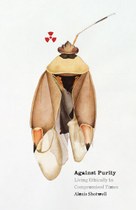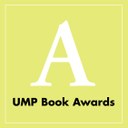Hypatia: Against Purity
 While reading Alexis Shotwell's compelling and thought-provoking book Against Purity: Living Ethically in Compromised Times, I was struck by a line in Hari Kunzru's novel White Tears in which one character remarks to another: "Why can't you accept there ain't no pure. There ain't no real. It's just people" (Kunzru 2017, 241). Shotwell implores us similarly, through careful theoretical moves, as well as tangible examination of lived cases, to accept that there ain't no pure.
While reading Alexis Shotwell's compelling and thought-provoking book Against Purity: Living Ethically in Compromised Times, I was struck by a line in Hari Kunzru's novel White Tears in which one character remarks to another: "Why can't you accept there ain't no pure. There ain't no real. It's just people" (Kunzru 2017, 241). Shotwell implores us similarly, through careful theoretical moves, as well as tangible examination of lived cases, to accept that there ain't no pure.
Purity is material as well as theoretical. Yet Shotwell shows us how the material and theoretical are susceptible to the same faulty logic. Both material and theoretical purity, on Shotwell's account, involve a kind of "purism" or "purity politics" (7) that strives for purity, despite purity being an impossible, and in some ways harmful, ideal. Material purity (so-called "clean" eating, detoxes, avoiding chemicals like BPA) is not Shotwell's primary target, although she does devote a chapter to the question of ethical consumption, including eating. Consumption is a theoretical problem that, like many of the theoretical problems Shotwell examines, is connected to practices of forgetting colonial pasts or classificatory genealogies and failing to recognize interrelatedness or interdependence (among humans; between humans and nonhuman organisms; or among past, present, and future conditions).
By: Elizabeth Lanphier
Story Date: 2019-01-22T05:51:00+00:00



